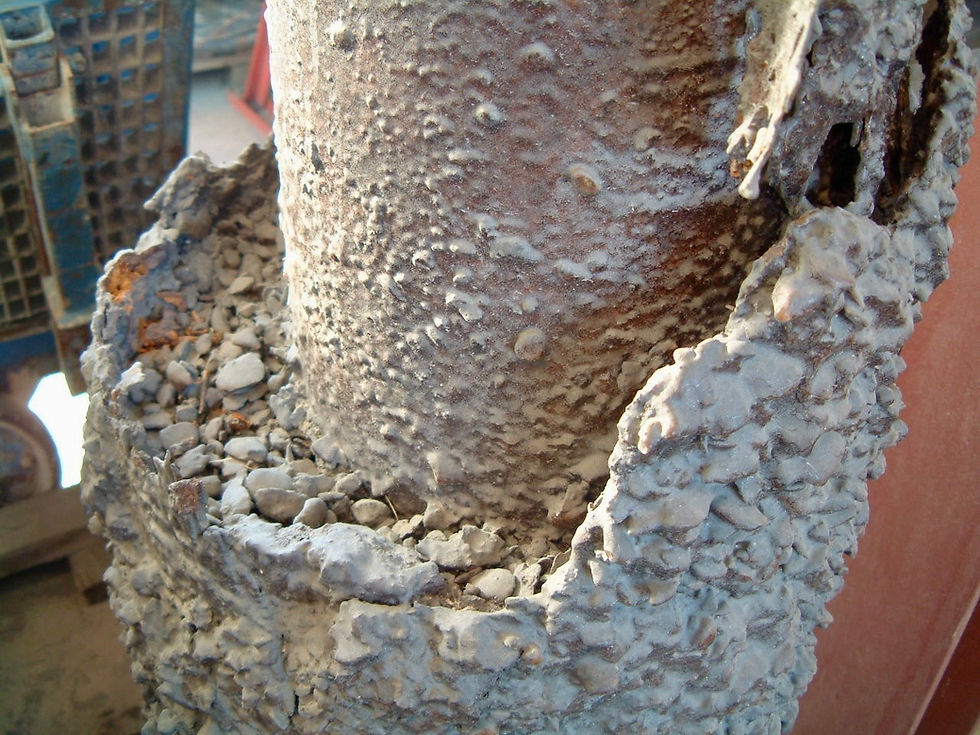When Iron Takes Over: A Swiss Well Screen Case Study
- David Bennett
- Aug 12, 2025
- 2 min read
In Switzerland, a routine well maintenance job turned into a textbook example of severe ferrocretion — the hard, cement-like build-up caused by iron-related bacteria (IRB) and dissolved iron in groundwater. The problem was so extreme that when the casing was pulled from the borehole, the entire gravel pack came out with it, locked tightly to the well screen like concrete.
What is Ferrocretion?
Ferrocretion occurs when naturally occurring iron in groundwater reacts with oxygen or bacterial activity, forming iron oxides and hydroxides. Over time, these products mix with sand grains, biofilm, and other mineral deposits, creating a hard crust. This is especially common in aquifers with:
High dissolved iron levels
Active colonies of iron-related bacteria
Low-flow conditions, which allow deposits to settle and harden
How Does It Get This Bad?
In a healthy bore, the gravel pack (the layer of gravel or coarse sand around the screen) remains loose, allowing water to flow freely. But in severe ferrocretion cases, the iron oxide deposits migrate into the gravel pack, coating and cementing the particles together.Over years without proper chemical rehabilitation, this cementation can:
Block screen openings, reducing yield
Lock the gravel pack to the screen
Cause the gravel pack to be physically pulled out with the screen during removal, as happened here
Why is it a Problem?
Once ferrocretion reaches this stage, simple mechanical brushing or airlifting won’t touch it. The hardened deposits drastically reduce the bore’s efficiency, restrict water flow, and increase pumping costs. Left unchecked, the well becomes unusable.
Prevention is Key
The Swiss well could have been saved with regular maintenance. Periodic treatment with a suitable iron oxide dissolver — such as a specialised, NSF-approved chemical designed for IRB control — can keep deposits soft and manageable. Combined with a proper flushing routine, this prevents the gravel pack from ever locking solid.
Lesson learned: Ferrocretion doesn’t happen overnight, but once it’s set, rehabilitation becomes costly — and sometimes impossible without major reconstruction.





Comments